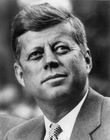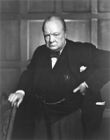Saren Federal Election, 1957

|
|
|
|
All 585 seats in the House of Commons
293 seats needed for a majority
|
| Turnout
|
97.4  0.0 0.0
|
|
|
First party
|
Second party
|
|
|

|

|
| Leader
|
Sir James Kennedy |
Winston Churchill
|
| Party
|
Conservative
|
Labor
|
| Leader since
|
22 February 1955 |
12 June 1939
|
| Leader's seat
|
Federal Division of Perth |
Federal Division of Epping
|
| Last election
|
290 |
290
|
| Seats won
|
387 |
193
|
| Seat change
|
 97 97 |
 97 97
|
| Popular vote
|
117,627,573 |
71,965,349
|
| Percentage
|
55.9% |
44.5%
|
| Swing
|
 10.7 10.7 |
 10.3 10.3
|
|
|
The landslide victory for the Conservative Party gave incoming Prime Minister, Sir James Kennedy, a large workable majority. The preceding election had resulted in a Hung Parliament which only sat on two occasions and failed to pass any bills. President, Phillip Gromshaw was forced to call the second election against the advice of the incumbent Government but on the approval of both the Principal and President of the Senate in addition to the Opposition Leader and Speaker of the House. Prime Minister Churchill opposed the second election, favoring to argue that the Senate being thrown out of synchronization, as it wouldn't be elected simultaneously was a risk he would not recommend to the President. On 6 September 1957, the President asked Prime Minister Churchill if a budget amendment bill would be passed within the next 24 hours, the Prime Minister's failure to guarantee and subsequent health concerns as he failed to attend the early part of the sitting lead to President Gromshaw dismissing the Prime Minister on 8 September 1957 and calling an election. President Gromshaw appointed Sir James Kennedy as Caretaker Prime Minister who could secure the passage of the Amendment. By the time news had traveled to Labor Party Sympathetic Senators that their party had been ousted from Governance, they had already sat to pass the Amendment that evening. Churchill refused to step down as Labor Leader and his popularity with the far-right prevented their utter annihilation.


